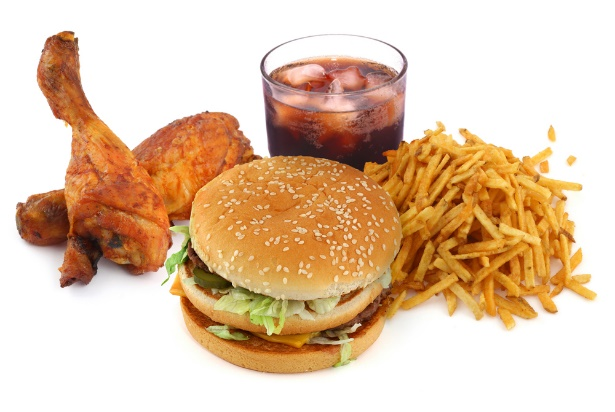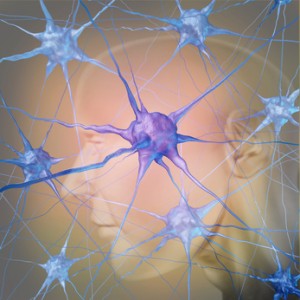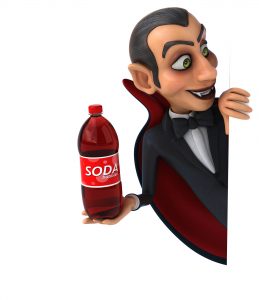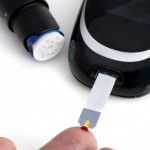Is Mixing Diet Sodas With Carbs Bad For You?
 Many people, and many doctors, believe that diet sodas and artificially sweetened foods are a healthy choice. After all:
Many people, and many doctors, believe that diet sodas and artificially sweetened foods are a healthy choice. After all:
- Cutting calories by drinking diet sodas and eating artificially sweetened foods should help you lose weight.
- If sugar is the problem for diabetics, diet sodas and artificially sweetened foods should be a healthier choice.
On the surface, these ideas appear to be self-evident. They seem to be “no-brainers”. The truth, however, is more complicated.
When studies are tightly controlled by dietitians so that the people consuming diet sodas don’t add any extra calories to their diet, the results are exactly as expected. People consuming diet sodas lose weight compared to people drinking regular sodas.
However, as I have described in an earlier issue of “Health Tips From the Professor”, the results are different in the real world where you don’t have a dietitian looking over your shoulder. In those studies, diet sodas are just as likely to cause weight gain as regular sodas.
As Barry Popkin, a colleague at the University of North Carolina, put it” “The problem is that we [Americans] are using diet sodas to wash down our Big Macs and fries.” In short, people drinking diet sodas tend to increase their caloric intake by adding other foods to their diet. Even worse, the added foods aren’t usually fruits and vegetables. They are highly processed junk foods.
Why is that? The short answer is that nobody knows (more about that later). However, a recent study (JR Dalenberg et al, Cell Metabolism, 31: 493-502, 2020) suggests an unexpected mechanism for the weight gain associated with diet soda consumption. Let’s look at that study.
How Was The Study Done?
 The study recruited 45 healthy young adults (ages 20-45) who habitually consumed less than 3 diet sodas a month. They were randomly assigned to three groups. The participants in each group came into the testing facility seven times over a span of 2 weeks. Each time they were given 12 ounces of one of three equally sweet tasting beverages in a randomized, double-blind fashion.
The study recruited 45 healthy young adults (ages 20-45) who habitually consumed less than 3 diet sodas a month. They were randomly assigned to three groups. The participants in each group came into the testing facility seven times over a span of 2 weeks. Each time they were given 12 ounces of one of three equally sweet tasting beverages in a randomized, double-blind fashion.
- Group 1 received a sucralose-sweetened drink contained 0.06 grams of sucralose (equivalent to two packets of Splenda).
- Group 2 received a sugar-sweetened drink contained 7 teaspoons of sucrose (table sugar).
- Group 3 received a combo drink contained 0.06 grams of sucralose plus 7 teaspoons of maltodextrin. Maltodextrin is a water-soluble carbohydrate that does not have a sweet taste.
o Maltodextrin was used because Splenda and most other commercial sucralose products contain it along with sucralose. You need something to fill up those little sucralose-containing packets.
o This drink was included as a control. The expectation was that it would give the same results as the sucralose-sweetened drink.
Three measurements were performed prior to and following the 2-week testing period:
- An oral glucose tolerance test in which participants drink a beverage containing a fixed amount of glucose. Then their blood sugar and blood insulin levels are measured over the next two hours.
o This is a measure of how well they were able to control their blood sugar levels.
- A test in which they were given samples that had either a sweet, sour, salty, or savory taste. Then:
o They were asked to identify each taste and report how strong the taste was.
o MRI scans of their brains were performed to determine how strongly their brains responded to each of the tastes.
Is Mixing Diet Soda With Carbs Bad For You?
 The results were surprising. The first surprise came when the investigators unblinded the results of the oral glucose tolerance test:
The results were surprising. The first surprise came when the investigators unblinded the results of the oral glucose tolerance test:
- Blood sugar and blood insulin responses were unaffected by the 2-week exposure to sugar-sweetened drinks.
o This was expected.
- Blood sugar and blood insulin were relatively unaffected by the 2-week exposure to sucralose-sweetened drinks. If anything, the control of blood sugar levels was slightly improved at the end of two weeks.
o This was a disappointment for the investigators. One of the prevailing theories is that artificially sweetened beverages alter the blood sugar response. The investigators found no evidence for that idea.
- Following the 2-week exposure to the combo drinks (sucralose plus maltodextrin), blood sugar levels were unaffected, but blood insulin levels were increased. This implies that more insulin was required to control blood sugar levels. In other words, these participants had developed insulin resistance.
o This result was unexpected. Remember the investigators had included this drink as a control.
o The investigators pointed out that the insulin resistance associated with the sucralose-maltodextrin combo could increase the risk of type 2 diabetes and obesity.
- Because of this unexpected result, the investigators did a follow-up study in which participants were given a maltodextrin-only drink using the same study protocol. The oral glucose tolerance test was unchanged by the 2-week exposure to maltodextrin-only drinks.
When the investigators conducted taste tests, the ability of participants to taste all four flavors was unchanged by a 2-week exposure to any of the drinks.
However, when the investigators did MRI scans to measure the brain’s response to these flavors:
- A two-week exposure to the sucralose plus maltodextrin drinks reduced the brain’s response to sweet but not to any of the other flavors.
o In other words, the subjects could still taste sweet flavors, but their brains were not responding to the sweet taste. Since sweetness activates pleasure centers in the brain this could lead to an increased appetite for sweet-tasting foods.
o This might explain the weight gain that has been observed in many previous studies of diet sodas.
- Two-week exposures to the other drinks had no effect on the brain’s response to any of the flavors. Once again, this effect was only seen in the sucralose-maltodextrin combination.
The investigators concluded:
- “Consumption of sucralose combined with carbohydrates impairs insulin sensitivity…and…neural responses to sugar.
- Insulin sensitivity is not altered by sucralose or carbohydrate consumption alone.
- The results suggest that consumption of sucralose in the presence of a carbohydrate dysregulates gut-brain regulation of glucose metabolism.”
The investigators pointed out that this could have several adverse consequences. Again, in the words of the authors:
“Similar exposure combinations (artificial sweeteners plus carbohydrates) almost certainly occur in free-living humans, especially if one considers the consumption of a diet drink along with a meal. This raises the possibility that the combination effect may be a major contributor to the rise in incidence of type 2 diabetes and obesity. If so, addition of artificial sweeteners to increase the sweetness of carbohydrate-containing food and beverages should be discouraged and consumption of diet drinks with meals should be counseled against.”
Why Do Diet Sodas Make You Fat?
 As I mentioned at the start of this article, there are a lot of hypotheses as to why diet sodas make us fat. These hypotheses break down into two classifications: psychological and physiological.
As I mentioned at the start of this article, there are a lot of hypotheses as to why diet sodas make us fat. These hypotheses break down into two classifications: psychological and physiological.
The psychological hypothesis is easiest to explain. Essentially, it goes like this: We feel virtuous for choosing a zero-calorie sweetener, so we allow ourselves to eat more of our favorite foods. It is unlikely that this hypothesis holds for all diet soda drinkers. However, it is also hard to exclude it as at least part of the explanation for the food overconsumption associated with diet soda use.
There are multiple physiological hypotheses. Most of them are complicated, but here are simplified explanations of the three most popular hypotheses:
- The sweet taste of artificial sweeteners tricks the brain into triggering insulin release by the pancreas. This causes blood sugar levels to plummet, which increases appetite.
- The sweet taste of artificial sweeteners is not appropriately recognized by the brain. This diminishes release of hormones that suppress appetite.
- Artificial sweeteners interfere with insulin signaling pathways, which leads to insulin resistance.
There is some evidence for and against each of these hypotheses.
However, this study introduces a new physiological hypothesis – namely that it is the combination of artificial sweeteners and carbohydrates that results in a dysregulation of the normal mechanisms controlling appetite and blood sugar.
What Does This Study Mean For You?
 Let’s start with the obvious. This is just a hypothesis.
Let’s start with the obvious. This is just a hypothesis.
- This was a very small study. Until it is confirmed by other, larger studies, we don’t know whether it is true.
- This study only tested sucralose. We don’t know whether this applies to other artificial sweeteners.
- The study only tested maltodextrin in combination with sucralose. We don’t know whether it applies to other carbohydrates.
Therefore, in discussing how this study applies to you, let’s consider two possibilities – if it is true, and if it is false.
If this hypothesis is true, it is concerning because:
- We often consume diet sodas with meals. If, for example, we take the earlier example of a diet soda with a Big Mac and fries, both the hamburger bun and the fries are high carbohydrate foods.
- Sucralose and other artificial sweeteners are used in low calorie versions of many carbohydrate rich processed foods.
If this hypothesis is false, it does not change the underlying association of diet soda consumption with weight gain and type 2 diabetes. It is merely an attempt to explain that association. We should still try to eliminate diet sodas and reduce our consumption of artificially sweetened, low calorie foods.
My recommendation is to substitute water and other unsweetened beverages for the diet drinks or sugar sweetened beverages you are currently consuming. If you crave the fizz of sodas, drink carbonated water. If you need more taste, try herbal teas or infuse water with slices of lemon, lime, or your favorite fruit. If you buy commercial brands of flavored water, check the labels carefully. They may contain sugars or artificial sweeteners. Those you want to avoid.
The Bottom Line
Many studies have called into question the assumption that diet sodas and diet foods help us lose weight. In fact, most of these studies show that diet soda consumption is associated with weight gain rather than weight loss.
There are many hypotheses to explain this association, but none of them have been proven at present.
This study introduces a new hypothesis – namely that the combination of artificial sweeteners and carbohydrates results in a dysregulation of the normal mechanisms controlling appetite and blood sugar. In particular, this study suggested that combining sucralose with carbohydrates caused insulin resistance and reduce the ability of the brain to respond appropriately to sweet tastes.
The authors concluded: “Similar exposure combinations (artificial sweeteners plus carbohydrates) almost certainly occur in free-living humans, especially if one considers the consumption of a diet drink along with a meal. This raises the possibility that the combination effect may be a major contributor to the rise in incidence of type 2 diabetes and obesity. If so, addition of artificial sweeteners to increase the sweetness of carbohydrate-containing food and beverages should be discouraged and consumption of diet drinks with meals should be counseled against.”
If this hypothesis is true, it is concerning because:
- We often consume diet sodas with meals. If, for example, we take the example of a diet soda with a Big Mac and fries, both the hamburger bun and the fries are high carbohydrate foods.
- Artificial sweeteners are used in low calorie versions of many carbohydrate rich processed foods.
If this hypothesis is false, it does not change the underlying association of diet soda consumption with weight gain and type 2 diabetes. It is merely an attempt to explain that association. We should still try to eliminate diet sodas and reduce our consumption of artificially sweetened, low calorie foods.
My recommendation is to substitute water and other unsweetened beverages for the diet drinks or sugar sweetened beverages you are currently consuming. If you crave the fizz of sodas, drink carbonated water. If you need more taste, try herbal teas or infuse water with slices of lemon, lime, or your favorite fruit. If you buy commercial brands of flavored water, check the labels carefully. They may contain sugars or artificial sweeteners. Those you want to avoid.
For more details, read the article above.
These statements have not been evaluated by the Food and Drug Administration. This information is not intended to diagnose, treat, cure or prevent any disease.


